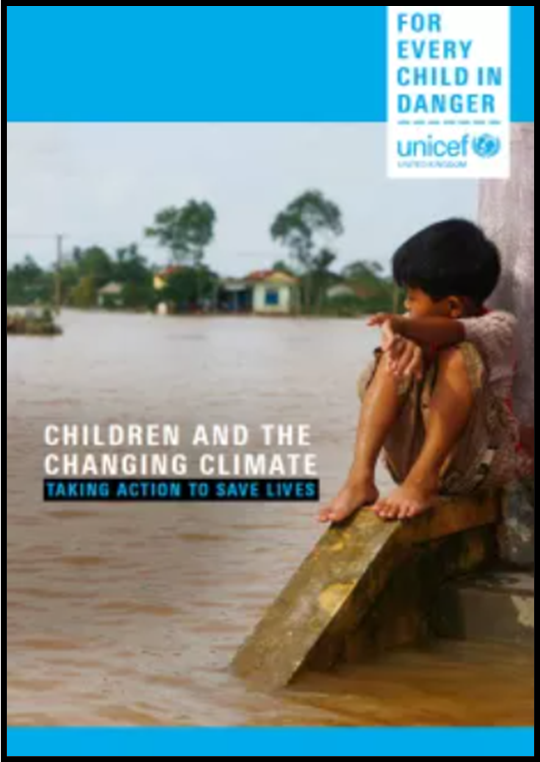CLIMATE CHANGE AND CHILDREN
SYLLABUS:
- GS 3 : Climate Change and its effects.
Focus:
- Warmest January on record already. Warmest 2023 since “global records began in 1880” (NASA). 2024 seems to be all set to beat this unenviable record.
Climate change has irrevocably altered our environmental norms, with each successive generation inheriting a planet markedly different from the last. This ongoing shift in baseline conditions is not just a scientific concern but a deep societal issue affecting daily lives and future prospects. As the reality of these changes becomes the new normal, the need for immediate and robust action becomes more urgent.
Declining Environmental Baselines
- Each generation experiences a gradual lowering of expectations for environmental conditions.
- Phenomenon known as Shifting Baseline Syndrome affects how new norms are perceived.
- Children in Delhi view high air pollution as a regular winter feature.
- Students in flood-prone areas like Assam and Chennai expect frequent disruptions.
- In regions like Maharashtra, long treks for water are becoming part of daily routines.
Children’s Perspectives on Climate Change
- Young individuals express their experiences and concerns about changing weather patterns.
- Children’s letters and essays reveal their acute awareness of environmental degradation.
- Common themes include increased heat, irregular rainfall, and pollution.
- Emotional responses often include feelings of responsibility and helplessness regarding the environment.
- Observations from children highlight a deeply personal impact of climate change.
Impact of Climate Change on Children:
- Vulnerability to Extreme Weather Events: Floods, droughts, hurricanes, and other extreme weather events disproportionately affect vulnerable children and their families.
- Health Risks: Diseases like malaria and dengue fever, already prevalent among children in regions like the Democratic Republic of Congo, may increase due to climate change-induced conditions.
- Displacement: Climate-related disasters displaced around 9.8 million people in the first half of 2020, particularly in South and South-East Asia and the Horn of Africa.
- Health Threats: Children face risks such as food shortages, diseases, water scarcity, and rising water levels, exacerbating existing health challenges.
- Food Scarcity: Climate change impacts food production, leading to local food scarcity and price hikes, further affecting children’s access to nutritious food.
- Nutritional Impact: Climate change can disrupt food availability, reduce access to food, and affect food quality, particularly impacting children from the poorest households.
- Obesity and Under-nutrition: Scientific evidence links obesity, under-nutrition, and climate change, highlighting the complex interplay between climate and child health.
Adverse Effects of Climate Change on Youth
- Children are among the most vulnerable to the effects of climate change.
- High temperatures and extreme weather events disproportionately affect young populations.
- UNICEF reports significant exposure of South Asian children to extreme heat.
- Each extreme weather event carries potential long-term psychological impacts.
- The increasing frequency of such events adds urgency to addressing climate impacts on youth.
Cultural and Social Impact
- Weather-related conversations often serve as ice-breakers in social interactions.
- Cultural references to weather, such as snowfall-time holidays and seasonal festivities, are changing.
- Traditional environmental cues that marked seasonal changes are becoming less predictable.
- Rising temperatures and altered weather patterns disrupt long-standing cultural practices.
- The alteration of these patterns leads to a cultural disconnection from the environment.
Responsibility and Inheritance
- Current generations are responsible for passing on a climate-altered planet to future ones.
- Discussions about inheritance now include the quality of the climate and environmental conditions.
- Legal recognition of environmental rights, such as India’s Supreme Court acknowledging the right to be free from adverse climate effects.
- Moral and ethical considerations about what kind of planet we leave behind.
- The need for a collective commitment to provide future generations with a sustainable and healthier environment.
As we confront the stark reality of a climate-altered world, our legacy and the environmental inheritance we pass to future generations remain in our hands. It is imperative that we address these changes with proactive solutions and policies that ensure a sustainable planet. Recognizing and acting on the responsibility to reverse or mitigate these effects is crucial for the well-being of all future generations.
Some of the Indian Initiatives to Fight Climate Change:
|
General Comment No. 26
Climate Change and Children’s Rights
|
Source: The Hindu
Mains Practice Question:
“Climate change has established new environmental norms that each successive generation must accept as baseline conditions. Discuss the societal and cultural impacts of these shifting baselines on today’s youth.”
Associated Articles:
https://universalinstitutions.com/climate-change-and-indian-monsoon/




